It is a good practice to only believe half of what you hear… but maybe nowadays even less that. Turning down the noise of mainstream biases, Dr. Michael Savage is a perfect example of why you should never judge a book by its cover.
The highly successful host of The Savage Nation radio program for well over two decades, Dr. Savage is also the author of more than twenty-five books, including nine New York Times best-sellers. Nationally syndicated, at one point his radio show reached 10 million listeners a week, and in 2016, he was acknowledged for his work with an induction into the National Radio Hall of Fame. All amazing accomplishments, the story still runs much deeper for a man who lived several lives prior to taking to the airwaves.
You see, Dr. Savage truly fits into no box; holding a master’s degree in medical botany and a second in medical anthropology, as well as a PhD. from the University of California at Berkeley in epidemiology and nutrition sciences, he is also environmental conservationist, as well as beacon of knowledge when it comes to health. Additionally, Dr. Savage fits into the boundaries of any political zoo, instead he is a thoughtful, independent thinker who stands by his convictions and waves no flags of any one party.
A truly unique individual, moreover, Dr. Savage also has a deep passion for food, art, books, and yes, music and film. Recently the man himself sat down for an in-depth recollection of his love for music, interest in classic ’50s cinema, plus so much more.
Cryptic Rock – During our previous interview in 2014 we spoke about your love for music, Rock and Roll Fridays on The Savage Nation radio show. You are someone who has a great deal of interest in all times of music and you are very open-minded with music. Let’s go right to the beginning, what first turned you on to music when you were younger?
Michael Savage – Right, how could a so-called ultra-right-wing maniac like me, like Black Jazz, Cuban music, Rock-n-Roll, Classic music… how can it be? It’s because maybe I’m not what they say I am.
I am working too hard, but this interview will be the great relief I need. The first music I heard as a child was Gene Autry and he was singing “Back in The Saddle Again.” I became obsessed with it; I must have had OCD. They got me a hand-cranked Victrola; I don’t mean one from the 1890s, but I’m talking from the late 1940s. I wound it up, I put on a 78 RPM (which I think are popular now and big collectibles), and it was Gene Autry. Here was this kid living in the tenements in The Bronx and I’m listening to this western voice singing, “I’m back in the saddle again, back where a friend is a friend.”
So, it brought to my mind a world I didn’t even know existed. It brought to my mind a world of the west where there were friends, wildlife played, and where there were wide open spaces; it seems so magical to me that such a place could exist. Music took me there; it took me out of this sad little world of The Bronx that I was living in. You can say that is when I found the magic of music.
Cryptic Rock – Wow, and it blossomed from there. You discovered Rock-n-Roll in the decades that followed. Let’s talk back to what you said about how it could be that a ‘so-called ultra-right wing manic’ be so diverse. The truth is you are not what some people think you are.
Michael Savage – To know me is to love me… it’s a Rock-n-Roll song. (Laughs)
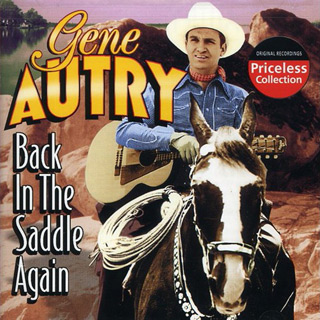
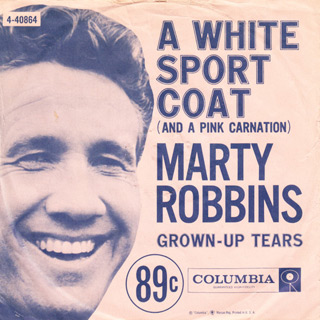
Cryptic Rock – (Laughs) Well, you are a very compelling individual in many aspects. You defy any stereotypes that one would have of you. Anyone who has paid attention to you would understand that. People who just hear sound clips or listen to what they are told are being short-sighted.
Michael Savage – That’s an important point, because who is really what they say they are in the stereotypical rendition? We’re all individuals, and if you give a person a chance to emerge from what you think they are, you may find something worth listening to.
Cryptic Rock – Right, and no one should be one-dimensional. However, it seems the modern world leans towards being so, thus sticking to one thought process. Clearly you are not this type of person, and your tastes in music is proof of such. So, where did it go from Gene Autry for you as a kid?
Michael Savage – After Gene Autry there was Roy Rogers; I loved Cowboy movies. I am a little kid listening to this stuff, I was living in The Bronx, and I never saw a horse. I see these handsome guys riding horses with beautiful wives wearing fringes. My mother didn’t have fringe outfits in The Bronx. (Laughs) I thought they were so attractive… girls with fringes on their legs. Man, did I want to meet one of those girls!
Cryptic Rock – (Laughs) And from there you become a lover of Jazz, Rock-n-Roll, Cuban music, and later on even Heavy Metal. It takes a particular type of person to like all types of music. Not everyone is like that, many stick with one style of music. So, what broadened you?
Michael Savage – That’s very interesting… do they stick with one kind of music? It’s a great question. So, we jump from childhood (the Gene Autry Cowboy music) to teen years. Now I’m in junior high school; I have peg saddle-stitch pants and trying to look like a little Elvis with all the other kids. The lyrics then were all about love and yearning for love. Girls were on a pedestal; nobody would have even made a piece of music putting down a woman or degrading a woman or a mother. Not only were the lyrics about love, marriage, and yearning for love, but it was about falling in love and having a family. Now compare that to the lyrics of today, I can’t even come up with a comparable anti-love and marriage song.
Then I’m in high school, it’s junior year, I can’t wait to graduate and get the hell out of there, I hated school. I was thinking about a song that got me through junior year, and it was “A White Sport Coat (and a Pink Carnation)” by Marty Robbins. I imagined myself suddenly becoming All-American and getting a white sport coat and a pink carnation. Remember, I’m an immigrant’s son, part of my life was in the old world and part of my life was in the new world. I was trying to become an American, so I figured that is how I would become an American, get a white sport coat and a pink carnation. (Laughs)
I was thinking about that as well, it’s not funny, but it’s tragically funny. My dad worked seven days a week in his little story on the Lower East Side of New York. He started taking me to work to be a good American worker; meaning you learn how to make some money, you learn the value of a dollar, you are not going to hang around and be bum on a Saturday after school, you’re going to work with me. So, we drove there in the DeSoto from where we were living in Queens in a little attached house. It was a big green car, with roof racks so you could deliver things. We were driving from Queens to the store and it was horrible, I hated going there. There was nothing good about it, it was horrible, I just wanted to hang around with my friends and just be a wastrel and do nothing; listen to music, maybe smoke some marijuana when we got to be teenagers, but I couldn’t. So, we would drive over the bridge and I’m grim in this car. Think of Black & White movie from Poland in 1948, that’s the image.
It’s like a bad Polish movie pre-Polanski, Black & White, and it was horrible realism. It was cold in the car, and he wouldn’t even put the heater on, he wanted me to be tough, he would say, “No heat, you don’t need heat, it’s not good for your health.” I’m shivering in the car wearing an overcoat, you could see your breath in the car, and I said, “What do you mean no heat!” I would try to turn the radio on to break the grimness, there was no conversation either, “Not even son, how are you?” The word son was never used in that car. I turned the radio on and he said, “No music.” I said, “What do you mean no music!” This was grimness, it was pre-Putin. It was living in Putin in the DeSoto; go on the battlefield and get ready to die for the nation.
Now we are going to jump cut, it was years later, I’m in high school or college and it’s a music-free household. You are not allowed to have music in Polish realism, even though we weren’t from Poland, I think our family was originally from Belarus. Think of Eastern Europe before the wall came down where there was no joy, no dungarees, nothing, people just walked around with misery on their faces. Years later now, I fell in love with Jazz. My mother was wonderful and I guess more oriented toward the children and art. She went and bought what was called a Hi-Fi in those days; it was a blonde cabinet that played 33 ½ rpm.
She brought the Hi-Fi home and said, “shh, don’t tell dad.” We are all afraid when he comes home from work grim; I don’t want to turn him into a monster, he just worked hard and he was very unhappy. He comes in, and I think I’m playing Cannonball Adderley (I loved him). My sister, mother, and I are standing around listening to Jazz music, and in comes my dad. He heard music in the house, that’s the first giveaway something horrible is going to happen, his face is white from exhaustion from the cold, the drive in the DeSoto, and the business not doing well. He says, “What’s that!” looking at the Hi-Fi. My mother stood up, crossed her arms and said, “No, we’re not getting it out of here, the kids like the music.” He then said, “What’s that junkie music he’s playing?” He was probably right, it probably was junkie music, but I love junkie music. In fact, I fell in love with junkie music because of that.
That brings me to the next phase of music life. You have probably seen the Blue Notes Collector’s Edition (2010) over the years, right?
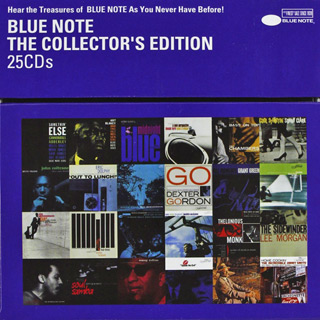
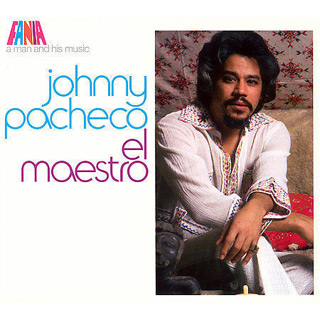
Cryptic Rock – Yes, you mentioned that collection in our 2014 interview. You mentioned how you listen to it prior to getting ready to go on the air.
Michael Savage – It’s unbelievable. It has Cannonball Adderley, Art Blakey, Kenny Burrell, Donald Byrd, Paul Chambers, John Coltrane, Herbie Hancock, Hank Mobley, Thelonious Monk (one of the greats), Bud Powell, Sonny Rollin, Wayne Shorter, Jimmy Smith, Horace Silver (I love “Song for My Father”), among others. I cherish this edition and I do listen to it.
If you think about it, from the age of first you had to listen to the radio to get music; whatever they played you heard, they selected it for you. Then you could buy a stereo, then had the Sony Walkman which must have been like going to the moon for people; you would see in the streets of New York with the Walkman plugged into their ears and they were in another world, they were in their own world, the world of music. Imagine I’m living in a time, which to me is a guy who was born in 1942, that I can turn my iPhone on, go to music, and play my favorite music like “El Faisan” by Johnny Pacheco. “El Faisan” is a masterpiece, every instrument comes in at the right millisecond. The horns go back to 1940s Havana, it was a certain kind of Jazz music, you can almost feel it. Then the singer comes in and the harmony is overwhelming. I’m moved out of my box to another place when I listen to this. First of all, I imagine singing on a stage with them, and I lament that I didn’t become a singer. Twenty-six years in talk radio, my voice is my instrument and people have said I have a musical voice, etc. Still in all, I wish I had taken up singing and somehow, even as a hobby, gotten into singing on the weekends with a Latin band.
That music changed my life in so many different ways. The funny thing about Latin music is that the lyrics are absolutely idiotic when you translate them. I thought, “What am I listening to?” I don’t know what ‘El Faisan’ is, so I translated it and it’s about a peacock; it’s basically saying don’t mess with the peacock. I started to laugh and understood it was a joke. Either what they meant is a peacock can be dangerous if you incite it; it’s not a weak animal). However, I don’t think that’s what it meant. I think Johnny Pacheco was like a peacock, I could be wrong, but I think he was gay; I don’t know, don’t care, I love him to death. I think he was saying don’t mess with the peacock because, even if I’m gay, I can knock your teeth out. Even if it is not what he meant, it’s what I got out of it. Whether he meant it literally or figuratively, I got the joke.
So, we’ve gone from the Blue Note Collector’s Edition of Jazz to Cuban music, and also touched on Rock-n-Roll. Before we move on, if I may, I want to go back to the teenage years again. All the male vocalists at that time had wonderful voices; Dean Martin, Al Martino, Frank Sinatra, Bobby Darin, Fats Domino, Frankie Lymon, and others. Every one of them spoke to me. Every one of them got me through bad times; one got me through algebra, another through geometry, another got me through a horrible, gray January in New York. The music lifts you up and carries you through it. Music has always been a medicine for me.
Cryptic Rock – Music is medicine for a lot of people. Life would be pretty dark and dull without music. Music is how we speak to one another universally. You mentioned in our past interview that your son, Russ, inadvertently drew your attention to Heavy Metal. You mentioned how he had the tape in his dresser drawer, you found it, and thought, “What the hell is this crap, I don’t want it in my house.” You ended up listening to it, you saw what he got out of it, and you began to appreciate it.
Michael Savage – (Laughs) I became my father in other words, no you are reminding me. It’s an interesting story, he had been listening to it in high school. Then he went away to college, and when you kid leaves for college, it is like your life is over, it is like your childhood is gone with him. He leaves, I’m going through the stuff he left behind and there was music. There was Heavy Metal stuff such as Metallica, and I had never heard of them. I started to play it and I fell in love with them; I thought it was some of the most amazingly powerful music I had ever heard in my life. It was after he left, and it was like holding onto my son while he was away at college. I got into it after that.
On my radio show Heavy Metal was the signature opening other than “Blue Monday” on Rock-n-Roll Friday. To this day, as a podcaster, I still get people saying, “We loved Heavy Metal.” I think that drew in more people than I would have imagined.
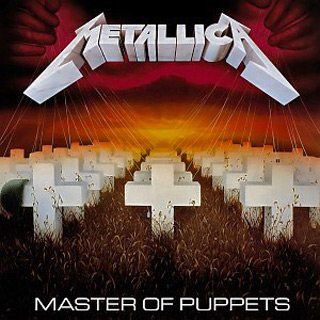
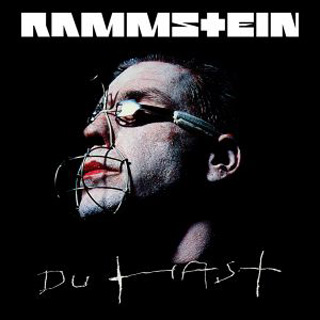
Cryptic Rock – Yes, you had a clip of “Masters of Puppets” by Metallica, as well as “Looks That Kill” by Mötley Crüe in the opening for many years. It’s very compelling to hear how your musical pallet continuously expanded through the years. You also are an appreciator of Rammstein.
Michael Savage – Yes, Mötley Crüe is great. I love Rammstein, it has such a powerful feel to it! I also did it to play with my audience. Of course, they are great musicians, but when I would play it was to drive liberals crazy because they would immediately think because I was playing German Heavy Metal it was like Nazi music; they are so biased and prejudiced that anything in German in Nazi to them. Right away they would think you are playing Nazi music, but I wasn’t. I was also playing Rammstein to mess with your head. (Laughs)
Oh, we missed talking about Jimi Hendrix, he is one of the greats. I also like Military music. Some of the great pieces are from Victory at Sea. To this day if I hear it, I am stirred in another way; in a patriotic matter, it gives me strength. A little side note, no one even knows about it, but in the 1980s, I was given an award called the Japan Creativity Society Award. This Japanese fellow who must have weighed 90 lbs. and was wiry as hell, came to America to give me this award. I became his friend and he told me every morning he walks up and listens to very militia music. I asked him, “Why do you do that?” He told me, “It gives me strength.” You can say, what is missing in our society? Military music? Maybe. Why do people like bands in parades? They get something out of that strength.
Here is something else really oddball, but I love IZ. I have his album IZ in Concert: The Man and His Music (1998), and it will bring tears to my eyes if I listen to it because I tend to get very sentimental. He was a blind Hawaiian musician who played the most plaintive guitar and singing you could ever hear on this planet. I can’t give words to IZ, but what a heart and soul he had. I can listen to Island music; people forget I lived in the islands for years. A lot of the South Pacific music is phenomenally powerful and influential in how it would move me.
You know what I also discovered about music? Especially when you get into the more rarified Folk music, that is created in a certain geography and place, the music is actually drawn from the sounds of that place. So, if you are in the South Pacific, and you are near the ocean, you can actually feel the motion of the music in the ocean. They picked it up literally out of the air. Music is wind at the end of the day, it is moving air.
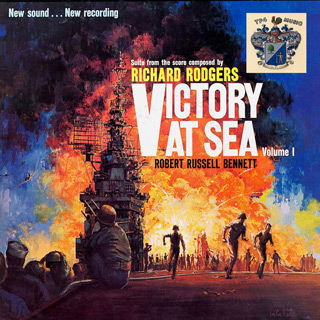
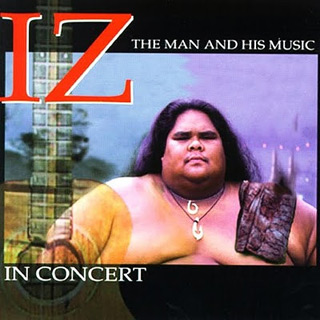
Cryptic Rock – Yes, music is energy, it is a force that moves us in sometimes mysterious ways.
Michael Savage – I also love Italian and German Opera. The lyrics to Italian Opera are some of my favorites; I have printed out some of the lyrics so I can sing along with some of the great singers. One is “Vesti la giubba” which is a fantastic, moving opera. The stories are simplistic, they are usually about love and loss, like all popular tunes.
Cryptic Rock – Right, the foundation for music is universally often loved. You have shown us how broad and open your musical influences are. So, let us jump to the cinema now. You have mentioned how you are a massive lover of The Sopranos. What are some films or series which came before or after The Sopranos that have really stuck with you?
Michael Savage – Wow, that’s a whole other story. The first movie I ever remember in my memory bank where I was moved was, She Wore a Yellow Ribbon (1949). I was six years old and I fell in love with the female lead (Joanne Dru); all I knew was this beautiful woman with blonde hair on a wagon whipping horses racing away. All I know is that I couldn’t sleep that night. I remembered this memory of that persona of that strong woman with the yellow ribbon who was not afraid of the horses.
You have to remember I was born before television; I know it is like the rime of the ancient mariner here. (Laughs) When you think about it in the early ‘40s there was no TV, it was all radio. I grew up in an audio world; my father would listen to Green Hornet (1936), I’d lay in his lap and you would hear the sounds. My father would explain to me he liked radio better than movies because it forces you to imagine the story. He taught me to use my imagination and that is why I was naturally good at radio. I grew up in radio; I’m one of the few people left who actually grew up listening to radio.
I don’t think I went to a lot of movies until the ‘50s when they were already Technicolor and dopey movies at that point. I remember the first TV set that came into The Bronx was a neighbor in one of the tenement apartments who got one. There was something like twenty-five kids in the room watching this little screen on which they put a magnifying glass to make it bigger. All the kids would sit around and watch Howdy Doody (1947).
I had no knowledge of film. My parents were not intellectuals as some had. Francis Ford Coppola’s father was, after all, a concert musician. Coppola grew up in the world of art and music, I didn’t; I didn’t come from a so-called cultured background. To me, I didn’t really understand it. I had to learn everything on my own, meaning what I liked, and investigate why I liked it.
Honest to God, I can’t tell you what I liked until the ‘50s come along. Then there was a slew of the greatest movies you could ever remember. Let’s start with Marlon Brando… who didn’t love The Wild One (1953) or On the Waterfront (1954)? Who didn’t want to be Marlon Brando? Everybody I knew wanted to be him. He changed everything, he played the sullen hero, not the happy hero. Then along comes James Dean who is a totally different story. He was the outcast, the pissed off kid where everything bothers him, the world sucks, he doesn’t like anything… he’s an archaist really. There was Rebel Without a Cause (1955) and did that strike a chord with me! Then there was Sal Mineo, an awesome character! People don’t even know how great Sal Mineo really was in creating a pathos for that type of personality.
Then of course there were the macho men movies, which at the time, I didn’t really care for. There was Broderick Crawford who I loved. I liked Sterling Hayden enormously and I didn’t know how much I appreciated him until The Godfather (1972) came along. He played the big Irish cop who busts Michael Corleone face open with one punch. He had a great voice and I look back on his other movies and they were awesome. I then read his biography and Sterling Hayden hated Hollywood, put down every movie he was ever in; said they were garbage and they weren’t even worth all the money they paid him. He said he spent all the money he made from the movies as fast as he got it because he so detested everyone in Hollywood… but his character was awesome!
I tend to like to watch these actor’s movies today because it reminds me of a time in America where the hero was always one and the bad son of a bitch always got punished in the end. I think this is an important point; all the plots in ‘50s until the anti-hero came along were hubris, nemesis, and catharsis. What does that mean? In all these movies it starts out with a gangster who is filled with hubris who is untouchable and no one can get him. That is until he meets his nemesis (Eliot Ness for example), and eventually, the catharsis comes for the viewer where the criminal is either killed or put in jail.
That’s how movies were made in those days and we all liked the catharsis that came; no matter how arrogant or how high he flew; we all knew the criminal in the end was going to get caught and punished or killed. We liked that; we like the moral play. Now we’ve reached a point where the reverse is true. Every character since the ‘60s is an anti-hero, the cop is made to be the bad guy, and the criminal is made to be misunderstood, no matter what he does. This is the insanity of the time we are living in right now.
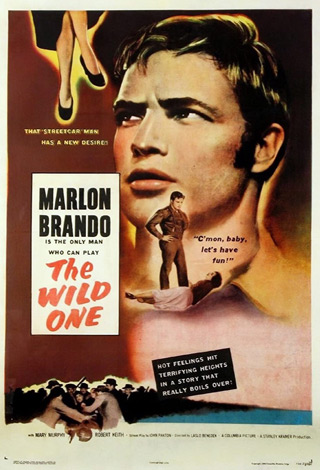
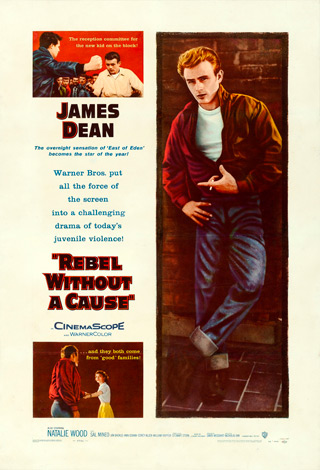
Cryptic Rock – Exactly. That is another point, it seems everything that is being produced has an agenda. Moreover, many productions in recent years are extremely dark and cold; not in a realistic sense as you mentioned, but disturbingly dark. What do you think of the state of filmmaking? When you watch a film or television series it is mostly for a fantastical escape, you do not always want to be beat over the head with something.
Michael Savage – Yes, there is an induced hopelessness. Older films also had a moral element to them. Let’s go back to The Godfather, which was the beginning of the change in Crime films. Mario Puzo was a great writer; I have read all his books. In the story they lay the groundwork and show Don Corleone comes over as a poor Italian Sicilian immigrant. He takes a job in a grocery store and he, his wife, and his first child barely have enough to eat. In one touching scene he brings home a pear, and his wife says how beautiful that pear is; extremely touching. He was as honest as they could be, he wouldn’t steal a penny out of that grocery store. Here is a guy who becomes a mob boss, the head of the five families, and they show you the turning point.
The guy who runs the mob in the Italian neighborhood in the Lower East Side of New York at that time (The Black Hand) then goes to the grocery store owner and tells him I want you to hire my nephew. The grocery store owner says, but I have a grocery boy, and The Black Hand says fire him. The grocer fires this poor Don Corleone and gives him a basket of groceries to bring home to feed his family. So, what is he going to do to feed his family? Slowly he is pushed into crime in order to survive. Later on, he won’t go into drugs. That’s a big point in The Godfather; that is why gets shot by The Turk, Virgil Sollozzo, because he refuses to distribute drugs. They were showing the morality of the gangster in that movie.
Now the reverse is true, there is no morality at all; they will kill their mother for a nickel. All morals are out of the window. There is nowhere to even look up to a tough guy anymore because they are all made of absolute garbage. There is no humanity that is worthy of respect; you don’t want to respect a degenerate. That is how Crime Dramas have changed. I don’t know if there are any characters today in Crime films that have any redeeming values whatsoever; they are all shown killing children, families, killing dogs, and burning the house down.
Why watch that crap? It leaves you with the most horrible feeling, and its hopelessness. When you look at some of the other homicidal movies being made, you hope in the end that they catch the guy who kidnapped the person who they are hiding in the basement, and the person is tapping on the ceiling in the basement, and you hope the cop comes to look for the person, and you hope the cop hears the person tapping on the chair down below, and they will be saved in the end… but no, instead the copy gets knocked over and thrown into another basement, and that’s how the movie ends. You want to commit suicide after that! You don’t know which way to turn!
People are going to the movies for relief as you just said. Instead, they go home and need drugs to get the relief, they can’t even get it from a movie. It used to be entertainment. You are supposed to come away from a movie feeling better, not worse.
Cryptic Rock – Completely agreed! You mentioned characters with redeeming qualities. Tony Soprano was obviously a bad guy, but there are points in The Sopranos series where you do feel some empathy for the character.
Michael Savage – Yes, he was a complex character. Of course, the therapy sessions with Dr. Melfi made him a human. You never saw a mafia guy go to a therapist; it was absolutely unacceptable for anyone in that world to go to a therapist. They were considered weak and dangerous, because if they are told to shrink all of this stuff, they can all get caught. Anyone who is that weak who has to talk to a therapist is a rat to them.
So, now you see this mob guy sneaking into a therapist office who has fainting spells from what his mother did to him. His mother was really crazy and she drove him nuts. She was a great character by the way; she was so manipulative. You want to hear something odd about The Sopranos? I swear to you, that woman looked like my mother (God rest her soul) and acted like my mother in many ways. She would say things I heard my mother say; so, there is a commonality, I don’t mean they got it from me. But I’m telling you my mother was on my show a few times from Boca Raton, FL. The famous line was when I called her up and asked her, “Mom, to what do you owe your longevity?” My mother was already eighty-six, she wasn’t an educated woman, so I thought I embarrassed her and she wouldn’t understand me; I was so arrogant. However, my mother had a sense of timing that was better than mine. She said, “In my case? No sex.” Great line, perfect timing, and any great comedian would understand what she had just done there.
The point is, my dog’s name was Tippy. Now, in one of the later seasons in The Sopranos where they do a flashback to Tony’s childhood, his dog’s name is Tippy. I say to myself, why is it impossible to believe that one of the writers listened to me? I was the third most popular radio show, so they probably heard me. The other two political shows did – Republic good, Democrat bad. This is whereas I at least did art, science, poetry, play music, and would sometimes talk about The Sopranos. I talked about Tippy, had my mother on… so I like to believe a little of me wound up in The Sopranos in a collateral way. (Laughs)
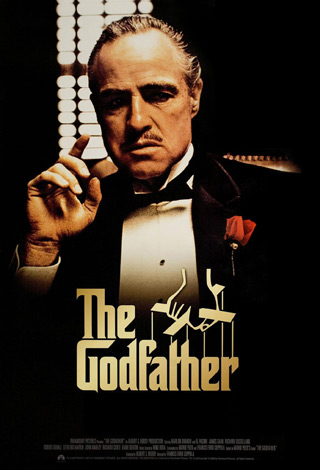
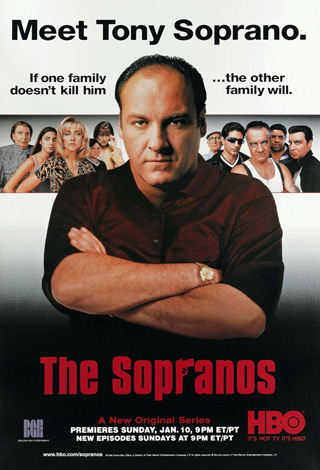
Cryptic Rock – (Laughs) You never know, it is possible. The Sopranos certainly was a fantastic series and not much has touched it since. You have mentioned in the past that a Michael Savage film was a potential project. Is this still possible?
Michael Savage – We have some footage that was shot a few years ago by a legitimate Hollywood cinematographer. It is about 30-minutes of the best footage ever done of me sitting and talking straight into the camera about my childhood; it’s called Boy in the Basement. That was going to be the centerpiece of this particular movie. I don’t really know what happened… I lost interest, I really don’t remember what happened.
I have hundreds of hours of super eight films going back to the early years. I have written pieces of it, I’ve talked to people about it, and eventually now we’ve come to this juncture of my life where the world has changed so fast, and not for the better. We have come to a point where I say, what’s the difference if I do this movie? Who the hell cares? Who is going to pay attention to it, and why should anyone care what my life was? That is nihilism in a certain way, but also realism. That’s where my head is right now, doesn’t it sound depressing and nihilistic?
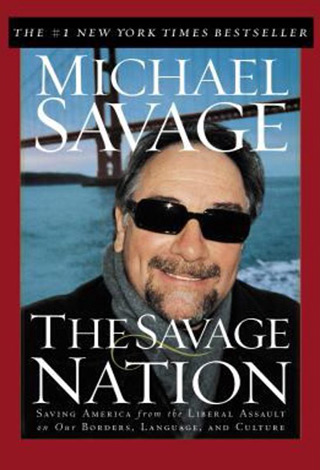
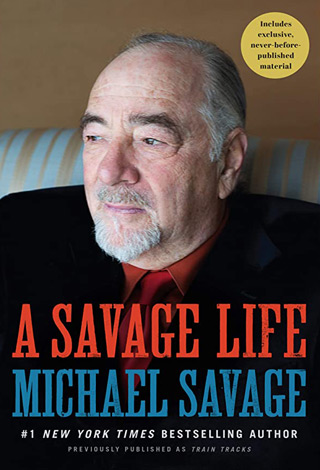
Cryptic Rock – A lot of people can relate to that feeling of defeat and lost inspiration. The film would certainly be interesting to see, especially to those who have followed your radio career. It almost feels like it is their grand plan to break our spirit and leave us uninspired to create anymore.
Michael Savage – When you say their grand plan, that opens up a whole series of questions. Their grand plan I’ve read, the great replacement theory, I’ve seen it and it really does fit if you really want to make it fit. Making the European American disappear from culture, and when I say that, I mean music, movies, and literature. When have you last seen an Ernest Hemingway, Norman Mailer, or Saul Bellow? They were giants and everybody read them. No one even knows Saul Bellow’s name anymore. If Saul Bellow existed today, he couldn’t get published because the ‘wokesters’ who have taken over would not publish a white male writing about his life in that manner. If Shakespeare were alive today, he couldn’t get a job teaching English at Passaic State University. (Laughs)

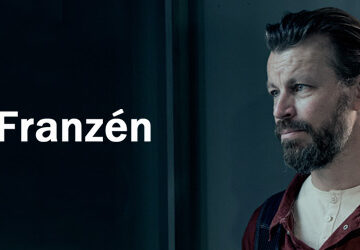
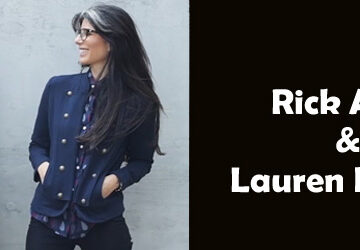


No comment